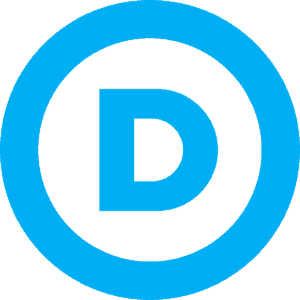
The Democratic National Convention wrapped up this week, delivering us a presidential candidate and a well-placed dagger in the back.
The Party Platform, a document that states the party’s values, priorities and beliefs, that had been developed for more than a year by party officials and activists, was suddenly updated last Monday, removing a rather important item about climate change:
“Democrats support eliminating tax breaks and subsidies for fossil fuels, and will fight to defend and extend tax incentives for energy efficiency and clean energy.”
While the amendment package containing the statement had already been approved, party officials claimed that it was an “error” that it had been included in the first place. And as such, they yanked it.
If this telling is correct, it speaks poorly of the competence of the party brass. They accidentally left a statement in the document until a few days before people were going to vote on it. And as of this writing, the text is still on the official website, despite not being in the approved document.
For his part, Joe Biden’s campaign has said he’s still committed to ending fossil fuel subsidies in his first year. And the party platform is ultimately a symbolic, non-binding document. But this is the same organization that decided that climate change didn’t deserve its own debate in the presidential primaries. More importantly, the correction was quickly followed by an endorsement of Biden from the Pipe Fitters Union, who have a vested interest in the Keystone XL Pipeline.
Make no mistake, this move is as crude as the oil it’s protecting. It’s insulting, but entirely in character for a political party that has never been able to commit to taking climate change seriously.
Even if Biden sticks to his guns on fossil fuel subsidies, he’s going to have a hell of a lot on his plate next year—a still out-of-control pandemic, a shattered economy, and tens of millions of Trump fans who think the election was stolen. And even that much depends on a peaceful transition of power in January, which is in no way a sure thing.
And, let’s be honest, ending subsidies isn’t even the beginning of the work ahead of us. It’s only not paying to make things worse. It is literally the least we can do.
I’ve wondered before if XR’s demands may be based on incorrect assumptions and that what we’re getting from our governments might be all they can offer. In the US, we have one political party that can’t get its act together on climate change and another that seems hellbent on accelerating it. Things don’t look good.
As a matter of basic strategy, we need to start thinking about ways to stop climate change if our governments turn out to be incompetent or hostile to saving the planet. They don’t get to exist in a future where we fail but letting the consequences come thirty years from now just isn’t acceptable. We need a plan B, if not for its own sake then as leverage.
We have ten years. We can’t keep waiting for someone to save us.

